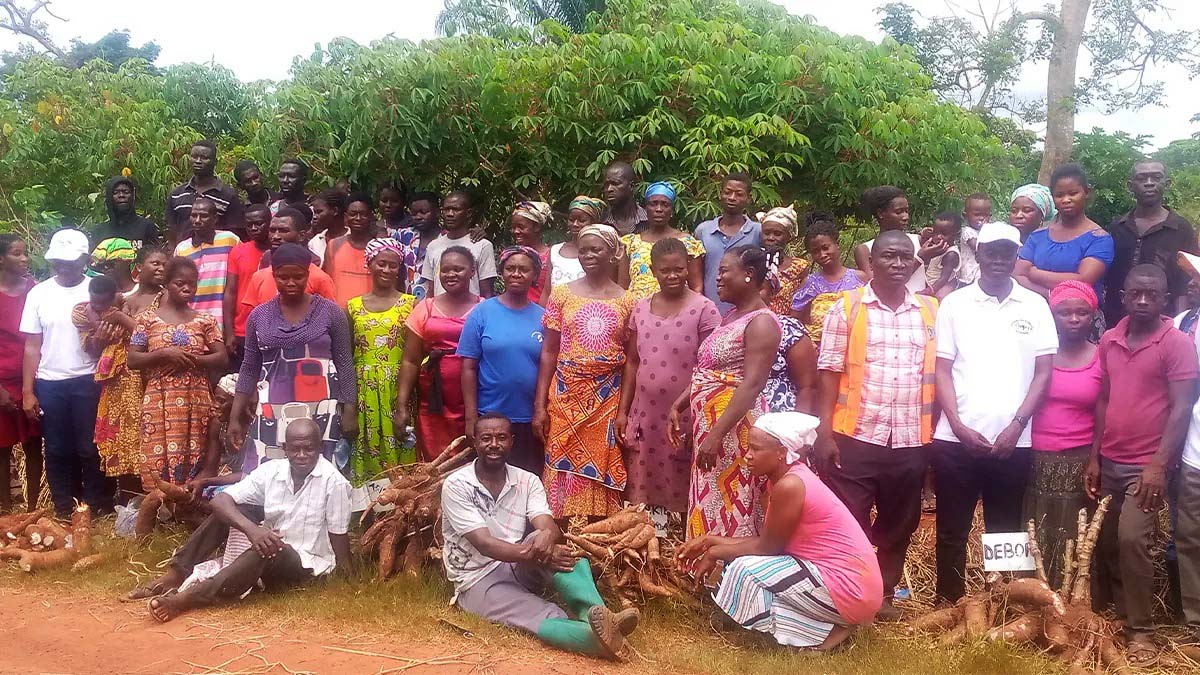
The Central and West Africa Virus Epidemiology (WAVE) project has successfully conducted a demonstration on enhanced cassava varieties, and farmers have attested to the remarkable yield achieved with these upgraded variants.
The Crops Research Institute (CRI) of the Council for Scientific and Industrial Research (CSIR) is serving as the host for the WAVE project.
The field demonstration of these improved cassava varieties took place in Asesewa, located in the Upper Manya Krobo district of the Eastern region. This region is known for its significant cassava processing activities, including the production of gari, cassava dough, flour, and starch.
Dr Allen Oppong, the Country Director of the WAVE project, provided insights into the initiative's origins, which commenced in 2015 with the aim of enhancing root and tuber production by managing viral diseases and promoting the adoption of robust planting materials for cultivation.
Furthermore, he highlighted the project's goals of safeguarding food availability, ensuring food security, and improving the livelihoods of farmers.
The WAVE project has received funding from esteemed institutions such as the Bill and Melinda Gates Foundation, the United Kingdom's Foreign Commonwealth and Development Office, CORAF, and the European Union.
Dr Oppong elaborated on the improved cassava varieties showcased during the field demonstration, which include “Abrabo pa,” AGRA, “Afisiafe,” and “Bankye hema.”
During the field trials, farmers observed that the enhanced cassava varieties they planted yielded significantly higher outputs compared to the native cassava varieties grown on their farms.
This disparity between the improved cassava and local cassava varieties left the farmers concerned.
“It is worrying to see farmers working very hard on the farm, and at the end of the day, they don't get the maximum yield that they expect,” expressed Dr Oppong. He urged farmers to visit the local Department of Agriculture in their respective districts to acquire this improved cassava stems and cuttings.
Mr Debrah Appiah-Agyekum, the Director of Agriculture for the Upper Manya Krobo district, reassured farmers that their office would provide technical assistance to address any challenges encountered during the cultivation of the enhanced cassava.
He advised farmers to switch to these improved varieties, highlighting their benefits such as reduced water requirements for irrigation, resistance to pests and diseases, and faster maturity.
Mr Appiah-Agyekum further emphasized that the taste of these improved cassava varieties is comparable to that of the local cassava, ensuring that there will be no issues with selling the produce.
One farmer, Mr Abaku Adam, expressed his satisfaction with the introduction of the enhanced cassava and confidently stated, “If we adopt the new stems and cuttings, crop yields will be high, and we shall earn enough income.”
Source: The Ghanaian Standard
Caregories
Must Read
Connect
Stay With Us
news and upcoming events




